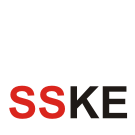From SSKE
Service Engineering and Management (SEM) Master Program
Foundations of Service Science
Service science is a new, interdisciplinary field that combines social science, business, and engineering knowledge needed for individuals and organizations (private, public, or non-profit) to succeed in the shift to the service and information-based economy. Even as this new field emerges, there is little agreement on what constitutes a service. Common concepts suggest that services are: intangible, perishable, experiential, and co-produced between providers and consumers. Many services involve information-intensive practices. This course examines services in the context of the information economy.
This course covers basic aspects of Service Science including service systems entities, value co-creation, service-dominant logic, modelling, innovation, and service oriented architectures. This course will investigate the nature of services, the need for interdisciplinary approaches to services innovation, and the technology and tools needed to provide services innovation. Students will review several scientific papers, engage in discussions, facilitate case studies, complete assignments (including use of business modelling tools), given presentations and write a final paper.
The course is divided into four main topic areas approximately equal in time budget:
- Introduction to Services Science, services, service systems: What is it? Why is it important? Definitions and theories and how they apply (or not) to real service systems.
- Modelling, analyzing, and optimizing services: review of literature and hands on experience using software tool(s). This section also presents European initiatives in promoting service science as foundation for innovation the service ecosystem. The eu27 institutions and organisations working in the service innovation area are referred, and some of the national strategies aiming at innovating strategies for economic development and social wealth are analysed (Finland, Norway, and Germany).
- Innovation in services: What new ways of doing business or new business models could be used to enhance services? Review of case studies.
- Service Oriented Architectures (SOA) and Service Oriented Computing: How can SOA help implement and architect service systems?



